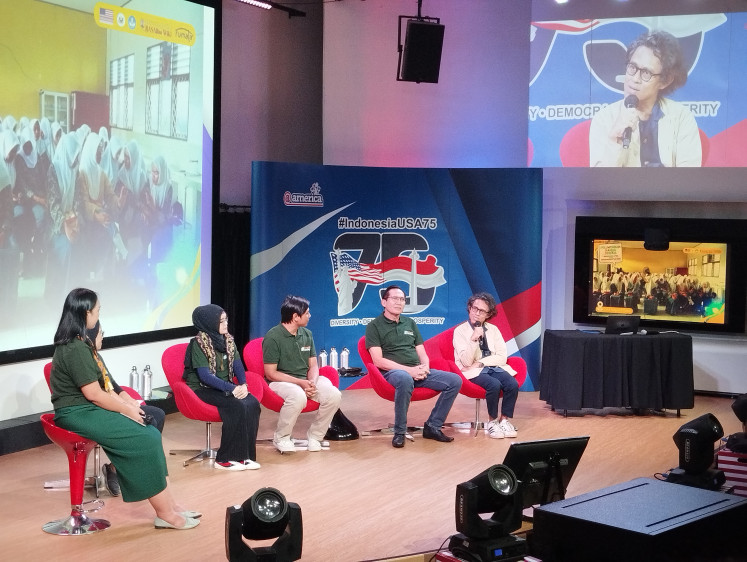s the second most linguistically diverse nation in the world, many Indonesians speak a regional language within their families and communities in addition to the country’s national language.
However, 2022 data from Statistics Indonesia (BPS) shows that the younger generation is less likely to speak regional languages compared to the pre-boomer generation born in and before 1945.
Incited by the declining number of regional language speakers, Basaibu Wiki — a nonprofit organization that encourages local communities to speak in their mother tongue — launched on March 7 two digital dictionary projects to preserve Makassar language and Banjarese, which are spoken by people in South Sulawesi and Kalimantan Island, respectively.
“We don’t want our native languages to go extinct. We hope young people can be proud to speak in their mother tongue,” Basaibu Wiki board chairman I Gde Nala Antara said during the launch.

Preserving regional languages: Renowned director Riri Riza (right) speaks on March 7, 2024, during the launch of two digital dictionaries at @america in Jakarta. The two digital dictionary projects aim to preserve Makassar and Banjarese languages, spoken by people in South Sulawesi and Kalimantan Island, respectively. (JP/Nur Janti)
Basaibu literally means “mother tongue”.
In creating entries for Makassar language, one of 13 regional languages in the province, Basaibu Wiki worked in collaboration with Rumata Art Space — founded by renowned director Riri Riza, the Education, Culture, Research and Technology Ministry and the ministry’s South Sulawesi Language Office.



